|
Relating to The Wayland Mayo Story Chapter 5, Page 1 of 2 Pages DISCHARGE & PRIVATE EMPLOYMENT Discharge came next, with the problem of what to do. I decided to continue as an aerial mapper, both as a pilot and photographer. I continued my training in instrument, night flying, even some limited aerobatics. I rented planes from North Perry Airport in Miami. I was working as Professional Photographer for the Miami Seaquarium, and on the side rented a 172 and shot a lot of pictures of the airports and businesses to make a few bucks. |
||||||||||||||||||
| I saw an ad in the Miami Herald that Rader And Associates, a large engineering company, wanted an aerial mapping Photographer. I applied and got the job.This was 1958. Rader had offices around the world. They were using a Cessena 180 and an AT- 11. As I got my feet wet in this new job, I found ways to continue to practice and develop my piloting skills.
As a mapping photographer, I was essentially in charge of the aircraft for each mission. Every pilot that I flew with was happy to let me preflight the plane, file the flight plan, and do the flying to and from the project. I am an accomplished mechanic and in many instances did maintenance on the plane. They bought an AT-11 to do a mapping project in Ecuador. The plane arrived with no camera porthole, and the aircraft needed a complete nose cone. I was able to accomplishe a lot of this work to get the camera mounted without outside assistance. |
||||||||||||||||||
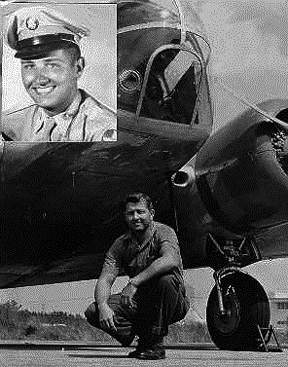 |
||||||||||||||||||
|
|
||||||||||||||||||
| The Rader Company had large projects and an office in Ecuador. I soon found myself flying from Miami to Panama, on to Guayaquil and then to Quito. From Guayaquil to Quito was very mountainous and also dangerous, as the airport at Quito is almost 10,000 ft. At that time there were no navigational aids and very little communication, and I was mapping uncharted jungle.
I was in charge of obtaining acceptable coverage on these trips and the Chief Pilot allowing me to fly to and from the project on virtually every flight. It was primarily my job to locate the project, make sure the aircraft was always on line, accomplish the photography, process and check the film. We used the lab at “El Instituto Geographico Militar”, where I also instructed them in lab work. I can barely order a hamburger in Spanish and none of them spoke English; but, we got the job done. We made several flights from Miami, to Montego Bay, to Panama, to Quayaguil, to Quito Ecuador so I got a lot of hours in the twin Beach. Our work was supporting the efforts of the Equadorian El Instituto Geographico Militar at the time of an attempted government overthrow. We were advised to leave immediately as the situation was explosive. Arriving at the plane we found armed guards, refusing us access to the AT-11. My boss was able to bribe them and we quickly took off for Guayaquil. Gassing up there we were soon on our way back to civilization. Government overthrows are not uncommon in South American countries. I was always afraid to tell anyone who I worked for. |
||||||||||||||||||
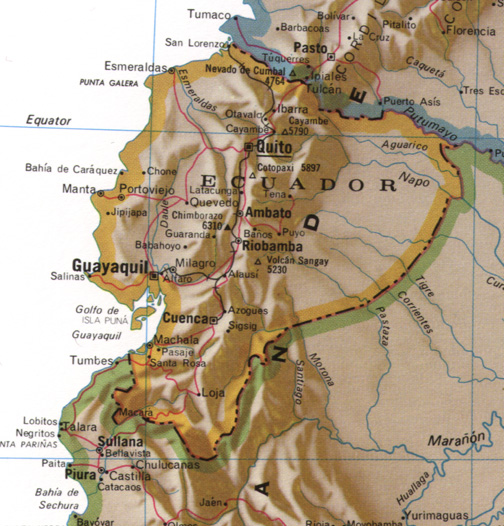 |
||||||||||||||||||
|
|
||||||||||||||||||
| The jungles in Ecuador are inhabited by the Jibaro Tribe. They are headhunters, also there were reports of cannibalism. Ecuador was always covered with clouds, with several mountains close to 20,000 ft. Mt. Chimborazo always sticking up ominously through the clouds. Cotopaxi is the highest active volcano in the world. I always figured every cloud had a rock in it. I made numerous flights to Quito, at times instructing their military on lab procedures. They received thousands of dollars worth of equipment from the U.S. and never knew how to install it. I was able to get everything uncrated and up and working. |
||||||||||||||||||
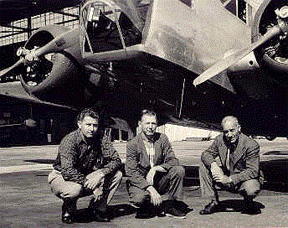 |
||||||||||||||||||
|
trip to Ecuador in AT-11 |
||||||||||||||||||
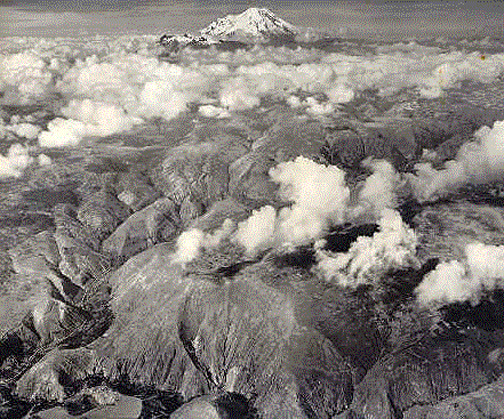 |
||||||||||||||||||
|
In all truth, this photograph is one of those I prize the most. It was selected as the cover of the annual “Photogrammetric Engineering Yearbook” in 1960. |
||||||||||||||||||
| I was always fascinated when an ancient corrugated JU-52 tri-motor that frequently came in for a landing in Quito, discharging passengers carrying chickens, pigs, etc. This plane was later purchased I believe by Martin Caidin and flown to the U.S. |
||||||||||||||||||
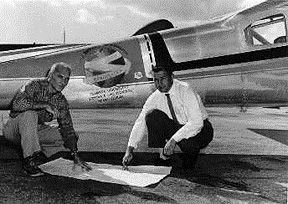 |
Here my Boss and I are planning a Bahamas mission where we will be using the Cessena 180 1958 |
|||||||||||||||||
|
Chapter — 01 — 02 — 03 — 04 — 05 — 06 |
||||||||||||||||||